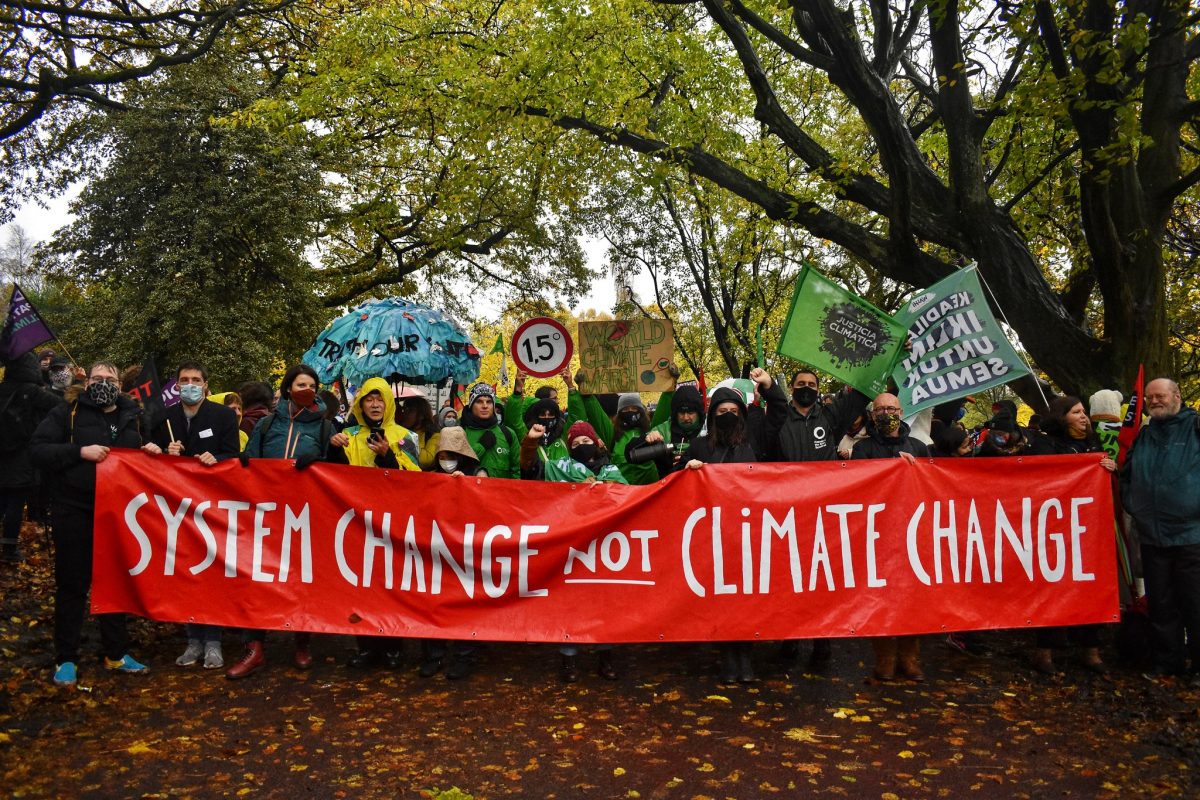
Disappointing Ruling in Landmark Hunterston Coal Case
The Court of Session has today ruled against brave bird watcher Marco McGinty in his challenge of the Government’s decision to build a coal power plant on a nationally important nature site at Hunterston. The Court will not require the Scottish Government to remove plans for the controversial coal fired power station on a nationally important nature site at Hunterston from the National Planning Framework.
The Court also refused to reduce the level of costs that Mr McGinty will be liable for. In an earlier hearing, Mr McGinty was awarded the first ever protective expense order in Scotland limiting his liability for the other sides’ costs to £30,000. Since this landmark ruling, new rules of court have introduced a standard cap of £5,000. Mr McGinty’s lawyers argued that his order should be reduced to reflect that.
However, in small but important step forward for access to justice in Scotland, the Court recognised that Mr McGinty had standing, or the right to take his case, overturning a previous ruling on this issue.
Friends of the Earth Scotland Head of Campaigns Mary Church said:
“While it’s good news that the Court recognised Mr McGinty’s right to take this case in the public interest, it is very disappointing that it has not taken this opportunity to reduce Mr McGinty’s costs from an exorbitant £30,000 to a more reasonable £5,000 as reflected in the new rules of court. It’s particularly ironic that this decision comes the day after a damning opinion from the European Court of Justice on the prohibitive expense of environmental litigation in the UK.
“The best decision making happens when communities are properly engaged and involved from the outset. Unfortunately, this doesn’t always happen, and sometimes people have to resort to legal action to defend their community and the environment.
“When the system fails to protect the environment, it’s up to communities and brave people like Marco to do it. When people take legal action in the public interest like this they shouldn’t be faced with financial ruin and legal loopholes.”
Over 20,000 people objected to the planning application for a new coal plant at Hunterston, making it the most unpopular application ever in Scotland. However, consultation on the planning framework that designated Hunterston as a nationally important development, and limited the basis on which people could object to it, was not advertised locally and attracted only 26 responses. Over a hundred local people attended a public meeting and many signed an affidavit for the court confirming that they only heard about the plans after the formal consultation period had ended.
ENDS
Notes to Editors
1. The decision of the Inner House of the Court of Session in Marco McGinty’s appeal is available at http://www.scotcourts.gov.uk/opinions/2013CSIH78.html. Lord Brailsford’s 2011 ruling against Mr McGinty, in which he found that Marco did not have ‘a real and legitimate’ or ‘real and practical’ interest in bringing the case, can be found at: www.scotcourts.gov.uk/opinions/2011CSOH163.html. In an earlier hearing Marco was awarded the first ever protective expenses order in Scotland – which limits his liabilities to £30,000: www.scotcourts.gov.uk/opinions/2010csoh5.html
2. Following legal action from the EC regarding the excessive cost of legal action, the Court of Session Rules Council have introduced rules of court to automatically limit petitioners liability to £5,000 in certain environmental cases. EU vs UK was heard at the Court of Justice of the European Union in summer 2013 and an initial opinion from the Advocate General was issued on 12 September 2013. The opinion is indicative of the final decision and finds the UK to be in breach of the EU Public Participation Directive regarding the prohibitive cost of environmental litigation. The opinion can be found at http://www.bailii.org/eu/cases/EUECJ/2013/C53011_O.html
3. Friends of the Earth Scotland changed Scot’s Law when we intervened in AXA General Insurance Limited and others (Appellants) v The Lord Advocate and others (Respondents) (Scotland), [2011] UKSC 46. The case centered on the validity of a 2009 Act of the Scottish Parliament that ensured that individuals could sue for damages if they contracted pleural plaques – scarring of the lungs. The insurers challenged the ‘title and interest’ of a number of individuals with pleural plaques to argue against the case. In ruling, Lord Hope of Craighead said: “I think that the time has come to recognise that the private law rule that title and interest has to be shown has no place in applications to the court’s supervisory jurisdiction that lie in the field of public law.” [Para 62]. For more information: www.supremecourt.gov.uk/decided-cases/index.html
4. In April 2011 the EC referred the UK to the European Court of Justice (ECJ) for non-compliance with the access to justice provisions of the Public Participation Directive, over the excessive cost of challenging decisions. The case is expected to be heard later this year. See europa.eu/rapid/press-release_IP-11-439_en.htm?locale=en
5. Leading Scottish judges have recently upheld the importance of public interest litigation in defending the environment. In Walton (Appellant) v The Scottish Ministers (Respondent) (Scotland), [2012] UKSC 44, Lord Reed emphasized the role of legal challenges to important decisions and acts by public authorities, as a vital means of up upholding the rule of law [at paras 89-96], and Lord Hope commented on the osprey whose interest can only be protected if someone speaks up on its behalf [at paras 151-154]. Ruling at www.supremecourt.gov.uk/docs/uksc-2012-0098-judgment.pdf.
6. Friends of the Earth Scotland is
* Scotland’s leading environmental campaigning organisation
* An independent Scottish charity with a network of thousands of supporters and active local groups across Scotland
* Part of the largest grassroots environmental network in the world, uniting over 2 million supporters, 77 national member groups, and some 5,000 local activist groups – covering every continent.
www.foe-scotland.org.uk
